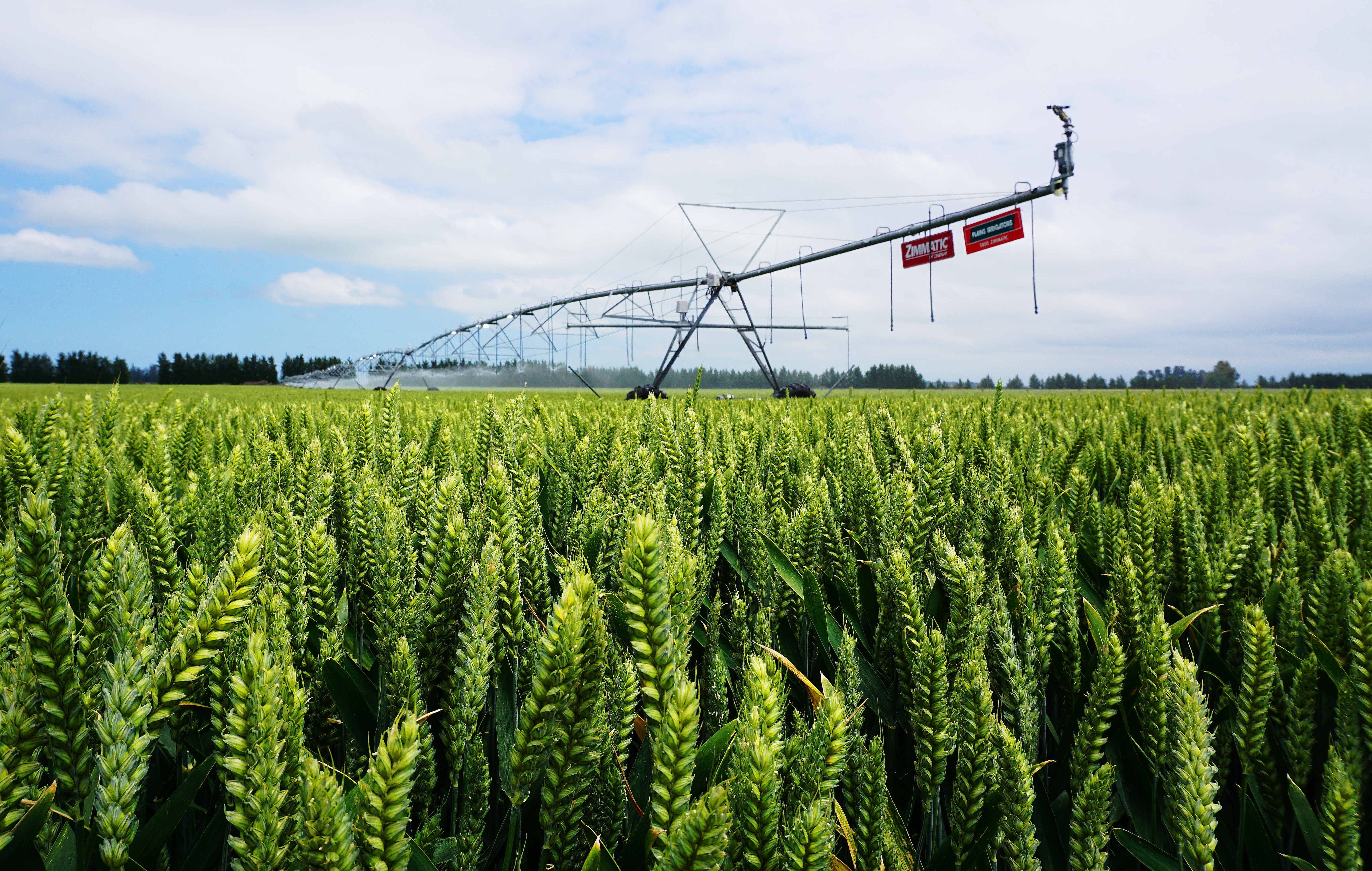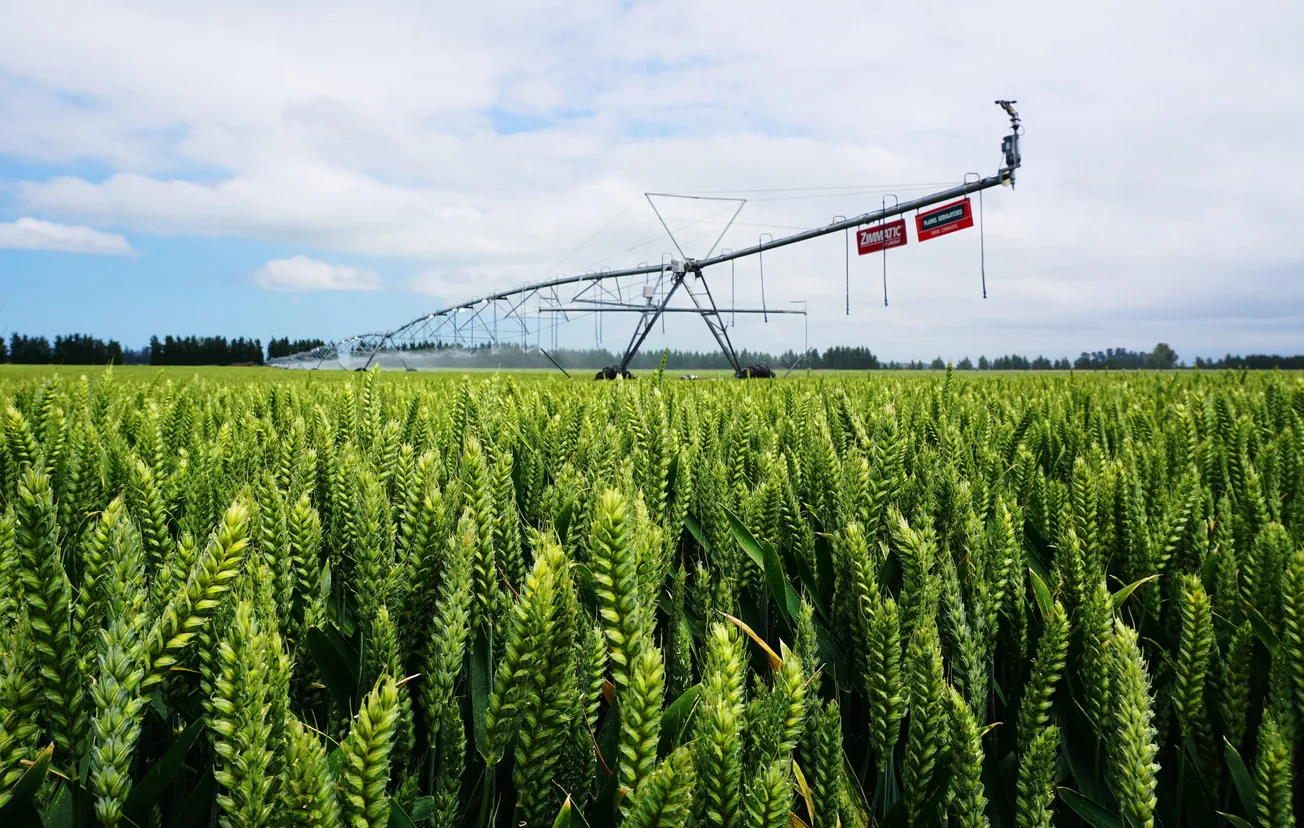Table of Contents
David Clark
Valetta Farm, Ashburton.
David and Jayne Clark farm an irrigated mixed arable farm at Valetta in Mid Canterbury, running breeding ewes, finishing winter lambs and growing a wide range of grain, forage and vegetable seed crops. It is a proudly inter-generational farm business with David’s parents living on the farm and their three sons taking a keen interest in farm life. David is currently Provincial President of Federated Farmers in Mid Canterbury.
Over the weekend I had a phone call from a mate who lives in urban Auckland and he wanted to have a yarn about the new Green Party Agricultural Policy, that to his mind seemed logical, fair and reasonable, almost an exciting step forward, but he wanted to see the policy through the lens of a farmer as well.
I have been reflecting on his question regarding the launching of the Green Party Agricultural ‘Policy’ trying to quantify the feeling of hopelessness that I and many farmers feel.
So let’s unpack this a bit.
How our business works is we have a farm income, that is the culmination of all the stock we sell and the grain and seed crops that we grow and sell to processors as it eventually makes its way to your local supermarket. Out of that income, we pay our farm expenses, seed, fertiliser, fuel and electricity, farm supplies, and various services. Most of this expenditure benefits businesses in our local town Ashburton and across the wider Canterbury economy.

Once we have sold our produce and paid for our expenses, there is hopefully a wee bit left over, which is what most business owners refer to as their return on investment. Last year our arable and stock farming business made a pre-tax return on total equity of 3.6%, which is a good result for this farming type.
The Greens intend to impose a ‘Wealth Tax’ of 1% on assets over $1m and 2% over $2m. That leaves us with just over 1.6% return on assets before we pay any Income Tax.
The Greens then plan to “charge a fair price” for the Methane burped by our sheep. I have previously heard prices of $50-$250/t of Carbon Equivalent suggested by the Greens, but let’s say at the low end of that range, our Climate Change cost just for Methane will be 1.5% of total assets.
That leaves us with 0.1%.
The Greens intend to develop a Water Charge in consultation with Iwi.
Previously the Greens have stated that charge should be 10 cents per cubic metre. David Parker publicly stated an intention for a water charge of 2 cents per cubic metre.
Here at Valetta, even at the lower charge of 2 cents per cube, the cost of watering our arable crops would be another 0.4% of total assets annually.
That leaves us making a 0.3% loss.
The Greens then want to impose a levy on fertiliser, and want us to run a zero-till or minimum-till system. Not sure how that works in a long term seed production system and adopt Regenerative principles.

But here’s the clanger, they intend to impose a Dissolved Inorganic Nitrogen (DIN) level of 1 mg/litre for all waterways in New Zealand. Currently, water flows out of DoC land at the western side of Mid Canterbury at 3.2 mg/l. To meet a DIN of 1 mg/l, Environment Canterbury’s own report from 2017 found that land use in the neighbouring Selwyn Te Waihora Catchment would have to revert to dryland sheep grazing.
We have budgeted that impact on this farm and it looks like this-
Crop Income, down 92%
Sheep Gross, down 62%
Expenditure, down 70%
Wages, down 91%
EBIT (Earnings before Interest and Taxation), down 68%
Capital Re-investment, down 74%
Net Profit, down 105%
Tax Paid, down 75%
The actual numbers are irrelevant, because the percentage drops will be seen across many or most farm businesses, regardless of size. Of course, that is before any of the other new taxes and levies they wish for detailed above.
This conversation hasn’t even begun to touch on the significant investment in technology and infrastructure we have made in the last 15 years to reduce our environmental impact, all of which would be both unaffordable, and irrelevant because none of it will get us even close to meeting the limits the Greens wish for.
The end result of all this is we would now own a totally unviable, un-bankable business that is not much more than a glorified life style block and has no economic future in food production. The knock on impact is that land values will collapse.
My suggestion to my mate, or anyone else in urban New Zealand reading this is to enjoy and savour the standard of living that you currently enjoy, make diary notes and take photographs so that you can look back on the “good ole days” as we embark on our journey to becoming a Zimbabwe or Venezuela of the South Pacific.
It was not sensible policy announced last week, it was the framework for economic destruction.
Given the catastrophic economic news released in the PREFU this week, I’m not sure we can afford to take a wrecking ball to the agricultural and horticultural sectors right now.
If you enjoyed this article, please share it like CRAZY with others. This information needs to get out there before the election.
Editor note: Please share this article with your Green voter friends. Most will be completely ignorant about the harm the latest Green policy will do to our vital farming industry. Our farmers are New Zealand’s backbone. Let’s all share the hell out of this article!









